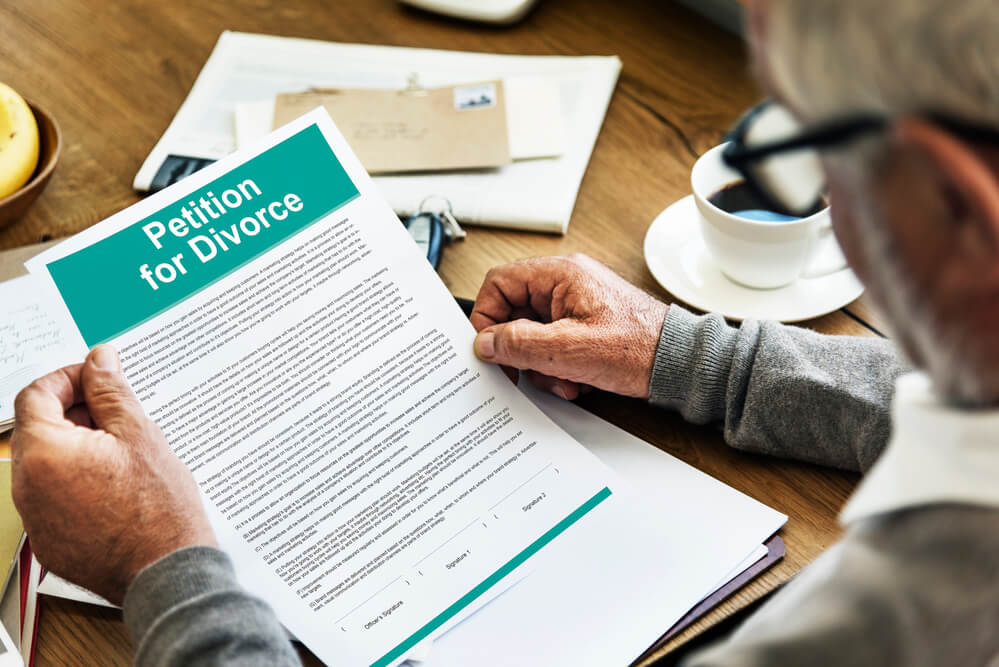This Florida Alimony Law Overview covers what is important about Florida’s Alimony Laws.
Alimony is the term given to financial support paid, usually monthly, from one former spouse to another after the marriage is over. Alimony is a “creature of statute” and the rules regarding it differ greatly between jurisdictions.
Some jurisdictions use a mathematical formula to determine the amount of alimony, but in Florida the exact determination of the amount and duration of alimony is in the discretion of divorce court judges.
Generally speaking, two facts must be established before a judge orders the payment of alimony: (1) one spouse must actually need financial support from the other spouse to pay their living expenses after maximizing their earning potential and (2) the other spouse must actually have the financial ability to pay financial support to the other party in addition to their own reasonable living expenses.
Although this seems simple in concept, the amount and duration of alimony is one of the most contentious issues in divorce litigation. This is for good reason, as the amount of alimony paid or received can be the difference between both the spouse paying or receiving the alimony being comfortable after the divorce or living in the proverbial “poor house.”
The most contested issues that come up concerning alimony are typically:
- Determining each spouse’s income for evaluating how much alimony they need or can pay;
- Determining the “standard of living” the alimony analysis is based on;
- Determining how much alimony will be awarded;
- Determining how long alimony is paid;
- Determining when alimony can be changed or stopped completely; and
- Determining what happens if someone stops paying alimony.
Determining income for the alimony analysis:
With Florida Alimony law, determining the income of the spouse paying and receiving alimony is a critical component to determining how much alimony one spouse needs, and what the other spouse is capable of paying. In a perfect world, both spouses would be employees with a long, demonstrated earnings record. In practice, however, this is rarely the case when alimony is being contested.
This is because, in many cases, when the spouse requesting alimony has not worked in a long time, there is an issue of how much money, if any, they can or should have to earn to contribute to their own support needs. Further, in many cases where enough money is made for a spouse to stay home, the other spouse is self-employed. This often means their true cash flow available for paying alimony is different than their income reported for tax purposes.
Florida Alimony Law
Under Florida Alimony Law, judges typically determine a spouse’s need for alimony after considering how much money the spouse could make if their employment potential is maximized. This means that if a spouse is not working, but could work, the judge will need to determine how much the spouse could earn if they were to re-enter the workforce. Similarly, if the spouse is not maximizing their education and training in their current job, a judge could determine that they are capable of earning more if presented with appropriate evidence.
When a spouse’s earning capacity is contested, it is sometimes the case that a vocational expert will be brought in to determine how much the spouse could earn if they maximized their employability. There are numerous rules and boundaries surrounding this fact intensive analysis, which will need to be explained by an attorney in your jurisdiction. But the bottom line is that the alimony needs analysis will usually be based on a spouse’s potential (not actual) income if they are physically capable of working, but are currently unemployed or underemployed.
Self-Employment and Alimony
Likewise, a self-employed spouse’s income for determining their ability to pay alimony is not as simple as using the income figure that appears on a tax return or profit and loss statement. In many cases when the spouse who will pay alimony is a business owner or is otherwise self-employed, there must be an analysis of how much cash flow the spouse receives from the business.
A good part of the work in many divorce cases is putting a number on the amount of the fringe benefits and in-kind benefits that a spouse receives from their business that are not included in their reported taxable income. As an example, businesses commonly pay for vacations, automobiles, and other fringe benefits of the owner. These types of expenses must be quantified and added back to the owner-spouse’s reported income to determine the spouse’s “divorce court income” available for paying alimony.
Determining the “standard of living” for the alimony analysis:
Under Florida Alimony Law, the marital standard of living the starting point for determining a spouse’s needs for financial support after the divorce. As an example, if the marital standard of living was to live in a one-million-dollar house, drive foreign cars, take luxurious vacations, and send the kids to private school, then the measuring of a spouse’s financial need for alimony after the divorce will usually be based on the costs of continuing a similar lifestyle after the divorce.
By implication, spouses who historically lived financially frugal lifestyles, will have a lower standard of living, and all factors being equal, would receive less alimony than a spouse from a marriage earning the same annual income but having lower expenses.
When people cannot agree, the actual dollar amount of a spouse’s need for alimony is determined by having an accountant preform a “needs analysis,” which is a one to two-year study of how much spouses spent on each category of expenses, with certain adjustments made to reflect necessary changes in lifestyle after the divorce.
It should be noted that while the standard of living during the marriage is usually the starting point for determining a spouse’s need for financial support, there are some exceptions to this that vary by jurisdiction. In many cases, the standard of living during the marriage becomes less relevant to the alimony analysis in shorter marriages or in marriages where the couple lived beyond their financial means.

Determining the amount of alimony:
With several notable exceptions and limitations, the amount of alimony is typically a mathematical function of (1) the cost for the spouse to live after the divorce (which is typically based on the marital standard of living) minus (2) the amount of money the spouse seeking alimony can earn if maximizing their employment potential.
By way of example, if a spouse seeking alimony will have expenses of $5,000/month after the divorce and is capable of earning $4,000/month by maximizing their employment potential, then the amount of alimony would be $1,000/month. Remember as stated above that alimony is only ordered paid if the spouse requesting alimony actually needs financial support. There will be no alimony paid if it is proven that the spouse seeking alimony is capable of paying their after-divorce living expenses out of their income.
Further, alimony typically cannot be awarded in an amount that leaves the spouse paying alimony with less cash flow than the spouse receiving alimony. Also, in jurisdictions where alimony is not determined by a formula, there are usually some customary “rules of thumb” maximums for alimony.
As an example, in Florida alimony will rarely exceed 40% of the gross income of the spouse paying alimony in long term marriages, and in marriages lasting less than seven years the amount of alimony will usually not exceed 20% of the gross income of the spouse paying alimony. The bottom line is that you need to speak with an attorney in your local area to get a better feel for what type of alimony you might realistically expect to pay or receive, as the amount can vary by jurisdiction and between judges.
Determining how long alimony will be paid:
The length of time the alimony payments last depends on the specifics of the support needed, but will vary significantly between courthouses and judges, which is why some states base the duration upon statutory formulas. Sometimes, the alimony will stop after a period of time deemed necessary for the spouse to become self-supporting. In other cases, the alimony will be paid over a much longer duration.
As a rule of thumb, alimony is usually not going to be longer than half the length of the marriage in marriages lasting less than ten years, but as the marriage gets longer, the duration the alimony payments last typically extends.
Although “permanent alimony” still exists in many states, the term is somewhat of a misnomer. As explained below, alimony payments usually stop once the person paying alimony gets to retirement age, or upon other major life events.
Determining when alimony payments change or stop completely:
It is almost always the case that alimony payments terminate upon either spouse’s death or upon the alimony recipient getting remarried, or in some cases, cohabitating.
Further, there are provisions in Florida Alimony Law that allows alimony to be reduced or terminated upon the person paying alimony reaching a reasonable retirement age and actually retiring.
Otherwise, most jurisdictions have laws allowing alimony to increase or decrease upon a showing of a substantial, unanticipated, change in circumstances, such as losing a job or suffering a health condition that increases their need for alimony or ability to pay alimony.
Although, in theory, alimony is almost always subject to change, be mindful that in practice, it is burdensome and expensive to change the amount of alimony.
For this reason, it is critical to ensure the original alimony award is realistic and sufficient when your case is settled. It is asking for trouble to agree to an unrealistic or insufficient alimony award with the thought that you will simply go and change alimony later.
Consequences of not paying alimony:
Most jurisdictions have laws designed to encourage people to pay the alimony set in their divorce. The bottom line is spouses who refuse to pay alimony despite having the ability to make the payments risk going to jail in addition to having their wages garnished and assets levied.
- Review this with one of our attorenys- Schedule a Conversation
- Call today to schedule a time to talk to an attorney (561-286-8275)



